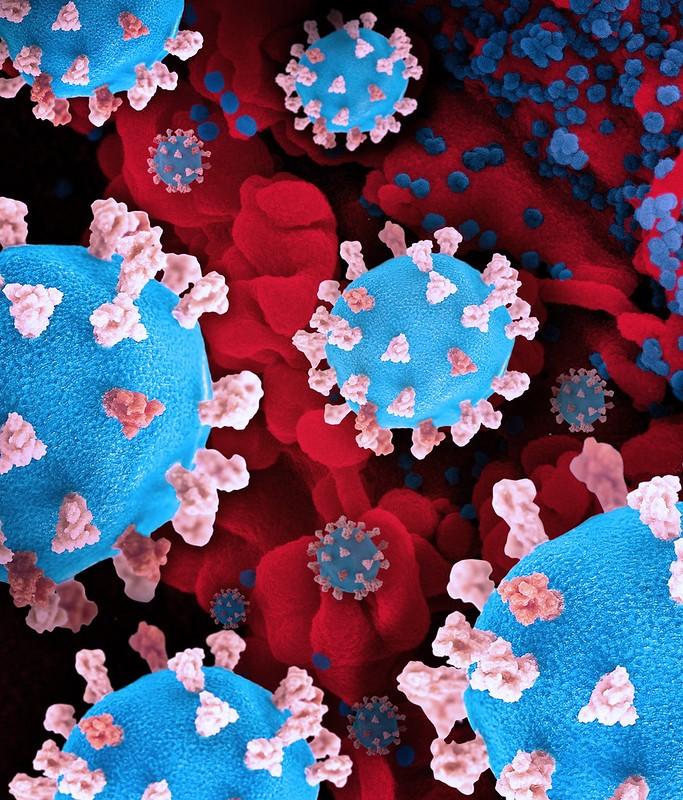Europe's COVID cases showed more signs of rising last week, marking the first regionwide spike since the most recent BA.5 wave, the European Centre for Disease Prevention and Control (ECDC) said today in a weekly update.
In the past, increasing cases in Europe have come ahead of similar rises in other regions, so trends in Europe are a closely watched global indicator.
Seniors hit hardest in Europe
Cases in people ages 65 and older rose 9% compared to the previous week, which the ECDC said was led by recent increases in 14 of 26 countries in the European Union that reported data. Deaths continued a decreasing trend.
Generally, hospitalization and intensive care unit (ICU) markers were stable in the region, but of 27 reporting countries, 14 noted an increasing trend. The ECDC said the overall picture is that increasing transmission in the majority of countries is mainly affecting seniors, which is in turn impacting hospitals.
"Changes in population mixing following the summer break are likely to be the main driver of these increases, with no indication of changes in the distribution of circulating variants," the ECDC said.
In the United Kingdom, most COVID indicators rose last week compared to the previous week, the Health Security Agency (HSA) said yesterday, pointing out that hospitalizations are highest in those ages 85 and older and that officials have seen a large spike in hospitalizations in those older than 80.
Officials said the North East region had the highest hospital admission level and over the whole region, deaths remained stable.
Mary Ramsay, MBBS, who directs the HSA's public health programs, said, "It is clear now that we are seeing an increase which could signal the start of the anticipated winter wave of COVID-19." She added that the time to get a booster shot if eligible is now. "Cases have started to climb, and hospitalizations are increasing in the oldest age groups," Ramsay said.
Most US markers decline amid subvariant shifts
In the United States, COVID metrics continue to fall, as variant proportions continue to shift. In a weekly update, the Centers for Disease Control and Prevention (CDC) said the 7-day average for new daily cases decreased 13.1% compared to the week before, with the 7-day average for new COVID deaths down 6.7%.
The 7-day average for new daily COVID hospitalizations dropped 7.4% compared to the week before. Hospitalizations have decreased by 25% over the past month, with rates highest in adults ages 85 and older.
One measure that rose was the 7-day average for PCR test positivity, which increased slightly from 9.6% to 9.8%. Wastewater surveillance suggests that 53% of monitoring sites reported a decrease in SARS-CoV-2 levels, while 41% reported an increase.
Regarding variant proportions, BA.5 is still dominant, but continues to decline slowly as newer Omicron subvariants continue to rise slowly, the CDC said today in its latest proportion updates. BA.5 declined from 83.2% to 81.3% over the past week, while BA.2.75 rose from 1.2% to 1.4% and BF.7 rose from 2.4% to 3.4%. Also, the level of BA.4.6, seen at highest levels in the southern Midwest states, rose from 11.8% to 12.8%.
7.5 million have received updated booster
In other updates today, the CDC said more than 7.5 million people have gotten their updated booster doses, up from 4.4 million last week. However, it also noted that 49.9% of the eligible population has yet to receive any booster dose.
A new survey from the Kaiser Family Foundation (KFF) said half of the public has heard little or nothing about the new booster shots and many don't know if the CDC recommends them. The findings also suggest that one third of adults and nearly half of seniors say they've either gotten the new booster or intend to get it as soon as possible.
The survey found a bit of improvement in COVID vaccination for children, which suggests a 7% rise from July. However, half said they will "definitely not" get their child vaccinated against COVID.




















